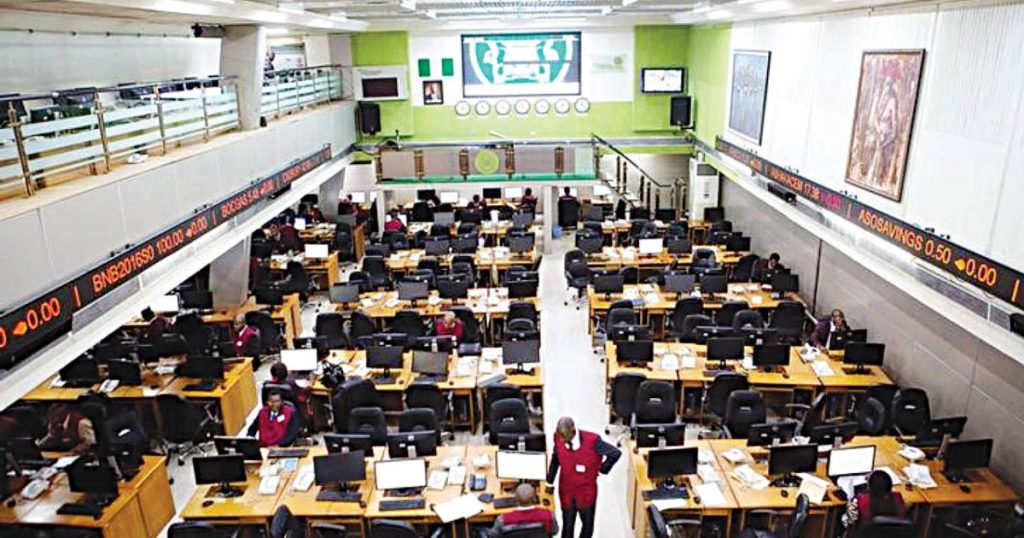
On the first trading day of the week, the Nigerian Equity Market faced a downturn, reflecting the global market’s decline.
This decline led to a N93bn reduction in market capitalization, bringing it down to N55.40tn.
With the All-Share Index dropping to 97,582.41 points, a decrease of 0.17% from the previous close at 97,741.86 points.
During the day’s trading, there were 9,738 transactions totaling N6.217bn, with 324.02m shares exchanged. The market breadth was negative, with 23 equities gaining while 25 equities saw a drop in their prices.
Leading the gainers were International Breweries, Presco Plc, and Sovereign Trust Insurance, each recording a 10% increase to close at N4.62, N485.10, and N0.55, respectively.
On the other hand, Chams Plc witnessed the most significant decrease among losers with a 10% decline to close at N1.98. This was followed by University Press Plc, which dropped by 9.92% to end at N2.18, and The Initiate Plc, down by 8.26% to close at N2.
The trading volume surged by 54% to 324.02m shares, with the number of deals rising by 47% to 9,738. Zenith Bank topped the volume with 37m traded shares, followed by United Bank for Africa, Veritas Kapital Assurance, and Oando with 35m, 25.5m, and 20.3m shares, respectively.
This downturn in the Nigerian market is part of a broader global trend where international share markets also experienced a fall on Monday due to fears of a potential recession in the United States.
Newsweek reported that this market shift was driven by a weak US July payroll report revealing an increase in the unemployment rate to 4.3%, marking the fourth consecutive monthly rise. The report also highlighted a significant shortfall in nonfarm payrolls, which only increased by 120,000 against the expected 200,000.
Additionally, according to Reuters, Mark Dowding, the chief investment officer at BlueBay Asset Management, stated, “In our assessment, a lot of this market sell-off has been due to position capitulation as several macro funds found themselves on the wrong side of a trade, triggering stops, beginning initially with FX and the Japanese yen.”
PUNCH reported that the Nigerian stock market experienced a turbulent week, with the All-Share Index and market capitalization depreciating by 0.46% and 0.19%, respectively. This resulted in the market closing at 97,745.73 points and N55.50tn, reflecting a loss of N438bn.
